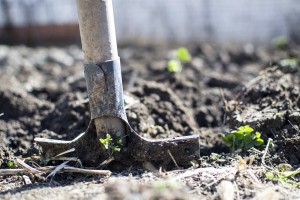
Rome: While soil salinization poses considerable threat to global food security, many countries still lack adequate capacity for soil analysis. A new Global Soil Laboratory Assessment Report on soil, released here today, shows 55 percent of countries surveyed lack adequate capacities for soil analysis including human resources, harmonization procedures and equipment. Many are unable to meet the national demand for soil analysis in Africa, Asia, and Eurasia.
The Report is a joint effort by 241 laboratories in 142 countries, it is led by FAO’s Global Soil Partnership (GSP) and its Global Soil Laboratory Network (GLOSOLAN) composed of more than 760 laboratories worldwide).
“Soil is the foundation of agriculture and the world’s farmers depend on soil to produce about 95% of the food we eat”, FAO Director-General QU Dongyu said. “Yet, our soils are at risk,” he stressed in remarks ahead of the December 5 event on the theme: “Halt Soil Salinization, Boost Soil Productivity”.
Among the critical issues are:
-Unsustainable agricultural practices and the overexploitation of natural resources as well as a growing population are putting increased pressure on soils and causing alarming rates of soil degradation globally.
-Over 833 million hectares of soils worldwide are already salt-affected, as shown on the Global salt-affected soils map launched by FAO in October.
-Estimates indicate that more than 10% of cropland is salt-affected, which poses a major risk to food security worldwide.
-Some of the worst affected regions are in Central Asia, the Middle East, South America, North Africa and the Pacific.
The management of salt-affected areas demands an integrated approach, embracing sustainable soil and irrigation and drainage management, the selection of salt-tolerant crops and plants including halophytes, which are able to grow well in such environments.
“We must prevent soil salinization, to properly manage natural salt-affected soils and to rehabilitate degraded soils from salinization,” Qu said.
In moving towards a digital agriculture, soil laboratory capacities should be strengthened to generate reliable soil data, the Director-General underlined.
Qu stressed the importance of continuous investment in soil laboratories to provide reliable data on which sound decisions can be made to ensure sustainable soil management and prevent soil degradation. He added that the cost of inaction in maintaining and restoring soil health can have dramatic consequences for the UN’s sustainable development agenda.
FAO-led initiatives include a Global Soil Information System (GloSIS) and a newly-launched Global Soil Biodiversity Observatory, which will contribute to the global monitoring network and the forecasting of soil health.
The COP26 highlighted the vital role of healthy soils in climate change mitigation and adaptation and in building resilience. And FAO has called on all countries to urgently improve their soil information and capacities by making stronger commitments towards sustainable soil management.
The European Union’s (EU) recent adoption of a new Soil Strategy, is a positive example, setting concrete and ambitious targets to improve soil health within and outside the Union, Qu said.
– global bihari bureau





